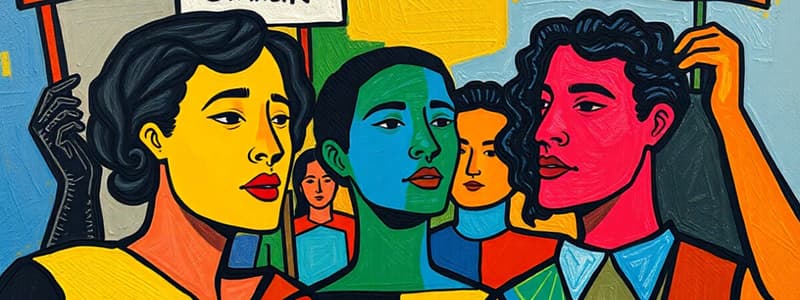Podcast
Questions and Answers
What distinguishes a right from a mere desire or want?
What distinguishes a right from a mere desire or want?
Why is the right to livelihood considered essential for dignity?
Why is the right to livelihood considered essential for dignity?
Which of the following is a characteristic of universal rights?
Which of the following is a characteristic of universal rights?
How does the right to education contribute to individual well-being?
How does the right to education contribute to individual well-being?
Signup and view all the answers
Which scenario cannot be claimed as a right?
Which scenario cannot be claimed as a right?
Signup and view all the answers
What is one main reason smoking and drug use cannot be claimed as a right?
What is one main reason smoking and drug use cannot be claimed as a right?
Signup and view all the answers
According to political theorists from the seventeenth and eighteenth centuries, where do natural rights come from?
According to political theorists from the seventeenth and eighteenth centuries, where do natural rights come from?
Signup and view all the answers
Which of the following is NOT one of the natural rights identified by political theorists?
Which of the following is NOT one of the natural rights identified by political theorists?
Signup and view all the answers
What shift has occurred in the use of the term related to rights in recent years?
What shift has occurred in the use of the term related to rights in recent years?
Signup and view all the answers
According to the conception of human rights, what is the basis for every person's entitlements?
According to the conception of human rights, what is the basis for every person's entitlements?
Signup and view all the answers
Study Notes
What are Rights?
- Rights are justified claims or entitlements that we are due as citizens, individuals, and human beings.
- Society recognizes these claims as legitimate and must uphold them.
- Rights are not based on what we want or desire, but rather on what is essential for a life of dignity and respect.
- They are conditions that lead to self-respect, such as the right to livelihood or the right to freedom of expression.
Examples of Rights
- The right to livelihood allows for economic independence, essential for personal dignity.
- Freedom of expression enables creativity and originality, and is crucial for a democratic society.
- The right to education develops our capacity for reasoning, provides skills, and allows for informed choices.
What are Not Rights?
- Activities that harm health or well-being cannot be claimed as rights. For example, smoking, drug use, and other harmful behaviors.
- Activities that harm others, such as smoking in public, are also not rights.
Where do Rights Come From?
- Natural law theorists (17th and 18th centuries) believed that rights are inherent and given by nature or God.
- These rights are inalienable, meaning they cannot be taken away.
- The three main natural rights are life, liberty, and property.
Human Rights
- The term "human rights" is preferred over "natural rights" because the idea of divinely or naturally-determined rights is less accepted today.
- Human rights are guarantees that society recognizes are essential for a good life.
- Human rights are based on the idea that all individuals are equally valuable and deserve equal treatment.
Studying That Suits You
Use AI to generate personalized quizzes and flashcards to suit your learning preferences.
Description
This quiz explores the concept of rights, including their definitions, examples, and what does not constitute a right. Gain insights into the importance of rights for personal dignity, expression, and societal engagement. Test your knowledge on how rights are upheld within a community.





